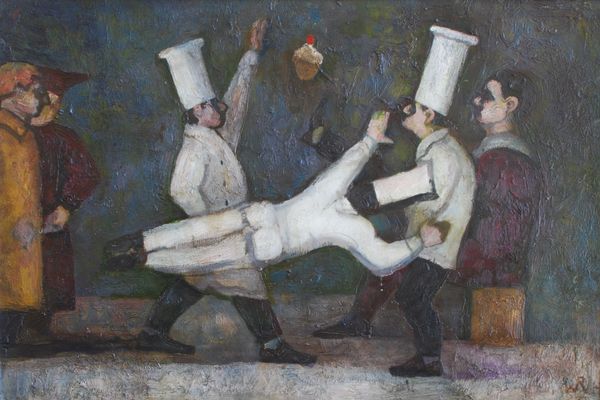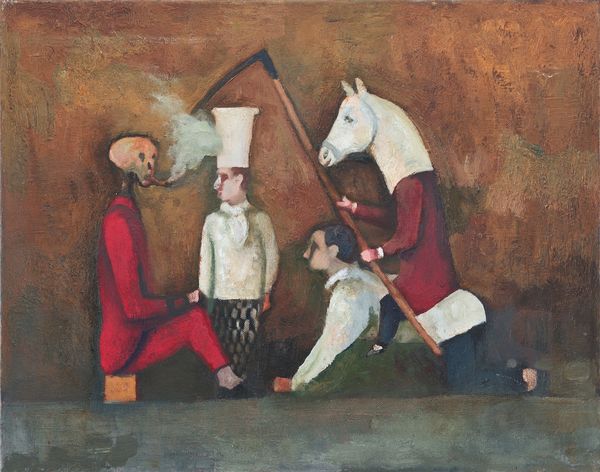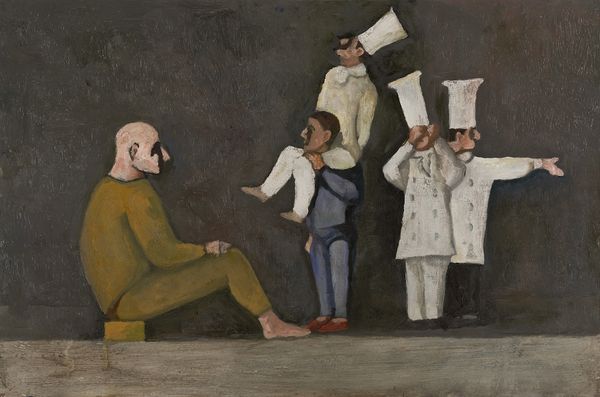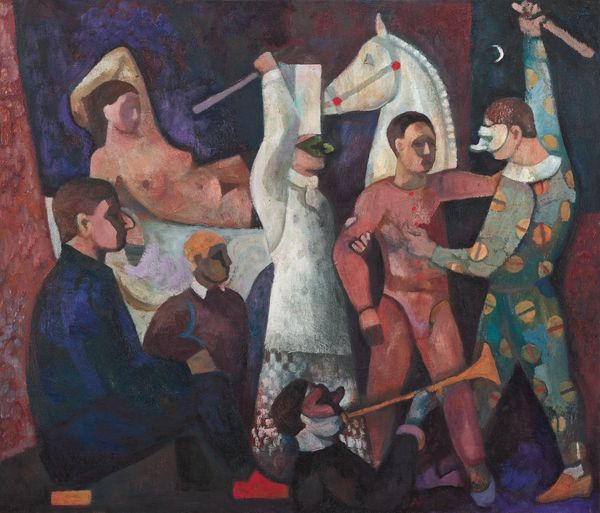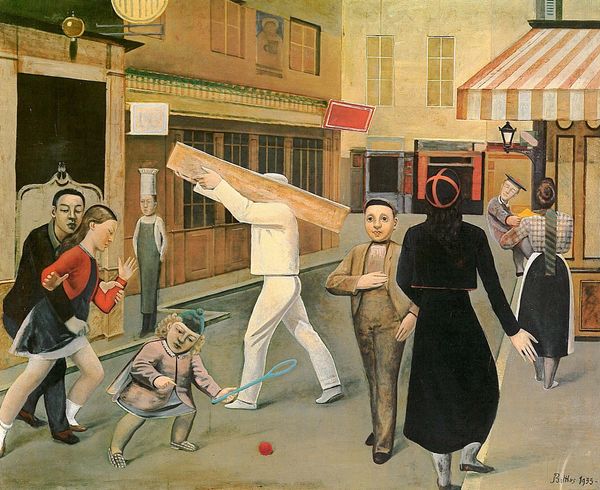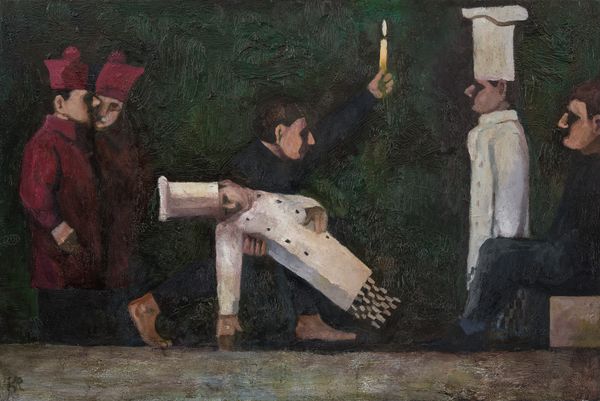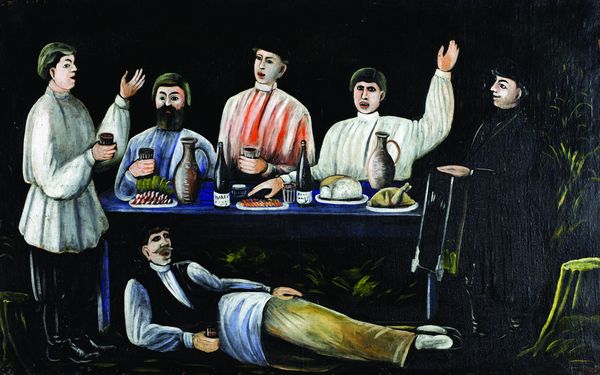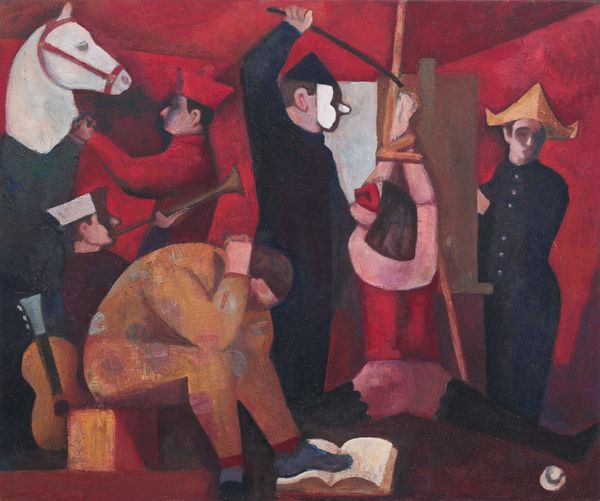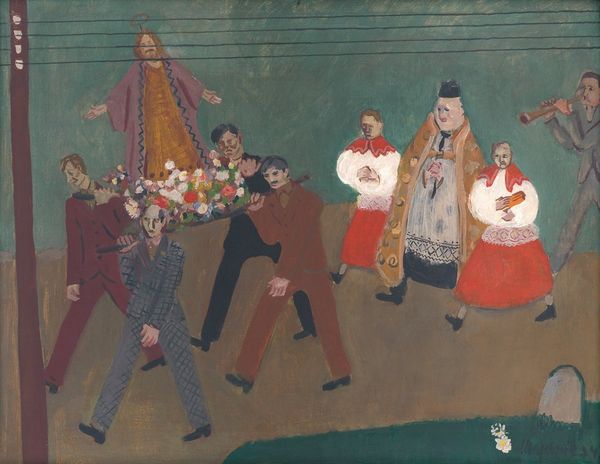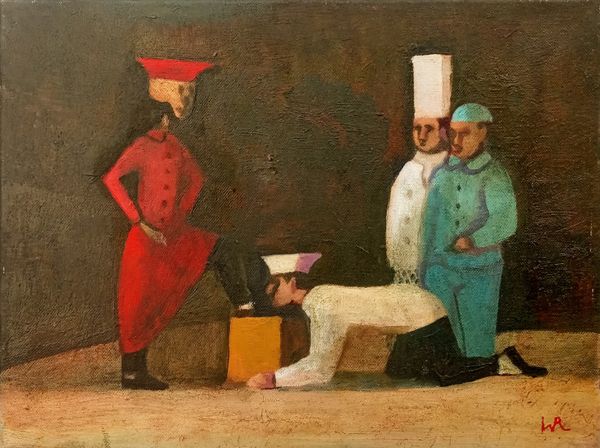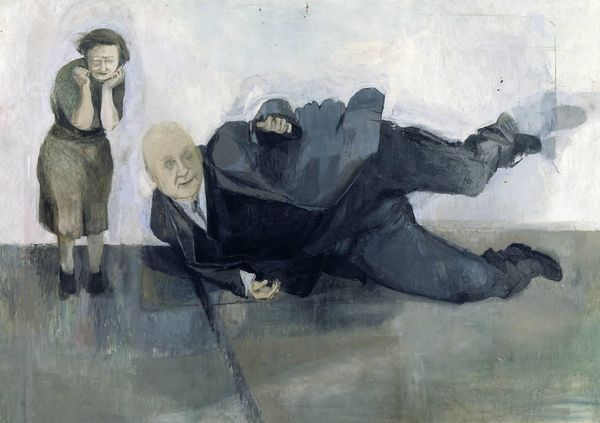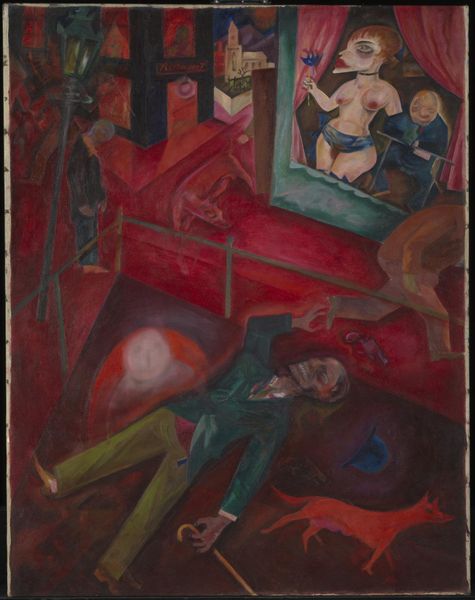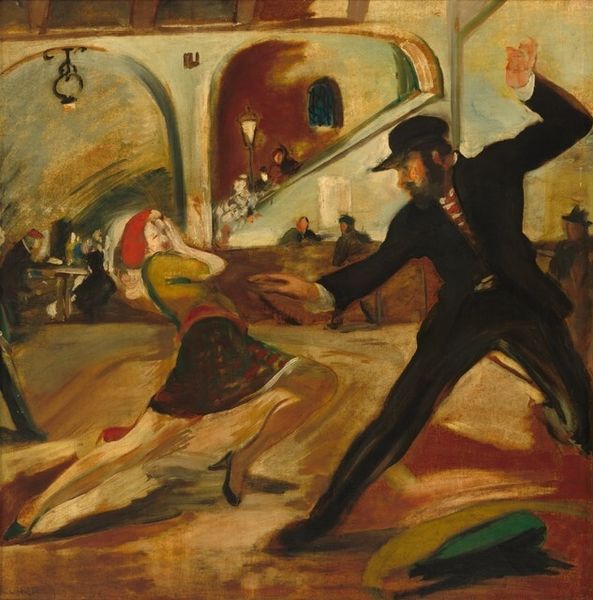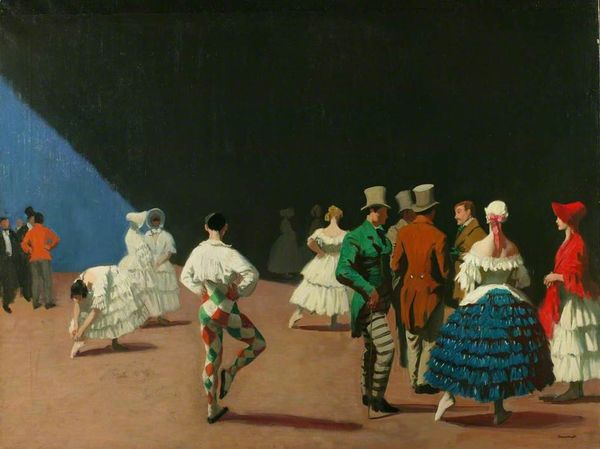
painting, oil-paint
#
contemporary
#
acrylic
#
narrative-art
#
painting
#
oil-paint
#
painted
#
figuration
#
oil painting
#
acrylic on canvas
#
underpainting
#
genre-painting
Dimensions: 41 x 61 cm
Copyright: Reproduction by permission of the artist
Curator: William Balthazar Rose's “A Cook Has Fallen,” painted in 2014, presents us with a perplexing narrative. The painting, realized in oil and acrylic, depicts what seems to be a calamitous moment in a kitchen, or perhaps something more symbolic? Editor: My first thought is… chaos! It's like a bizarre, stilted vaudeville act gone wrong. You’ve got these figures, presumably cooks, caught in some kind of theatrical mishap. The dark background makes their strange outfits and poses stand out so starkly. It's got this weird, almost haunting, energy. Curator: Precisely. Consider how the composition places emphasis on the fallen cook, who then creates a rupture of labor, and brings our attention to class structures within the context of kitchen work. Are they literally lamenting the loss of perfectly good dish or bemoaning systemic inequities? Rose is provoking that space. Editor: Totally, there's this performative element, for sure, that makes me think of artifice and what we're supposed to take seriously. One's flat on their face, while the other seems to be dancing and another just… watching with his hands on his hips. Are they acting? Is this a moment frozen in a strange dance of dysfunction? Curator: Let’s think about it within the legacy of genre painting, the underbelly of everyday labor visualized—in which this asks questions about the performativity of roles and expectations of certain classes of workers. It can perhaps reveal not only their inner struggles but also wider societal attitudes regarding hierarchies. Editor: I love that idea of performance playing a role! There's something both funny and deeply unnerving about these stiff bodies against such a stark void, it seems, it's calling out our expectations. You're also pointing out this theme allows us question deeper labor inequity issues; Rose is so brilliantly bizarre with that vision. Curator: Exactly, through such visualization it grants an opportunity to not only investigate class structures more intersectionally and intimately but deconstruct established societal norms in the modern world. Rose is advocating. Editor: In the end, I'm struck by how it manages to be playful and profound at the same time; something strange but very telling; as though he is taking everyday events and offering space to deconstruct. Curator: It leaves one pondering far more than just kitchen antics. A provocative glimpse.
Comments
No comments
Be the first to comment and join the conversation on the ultimate creative platform.
